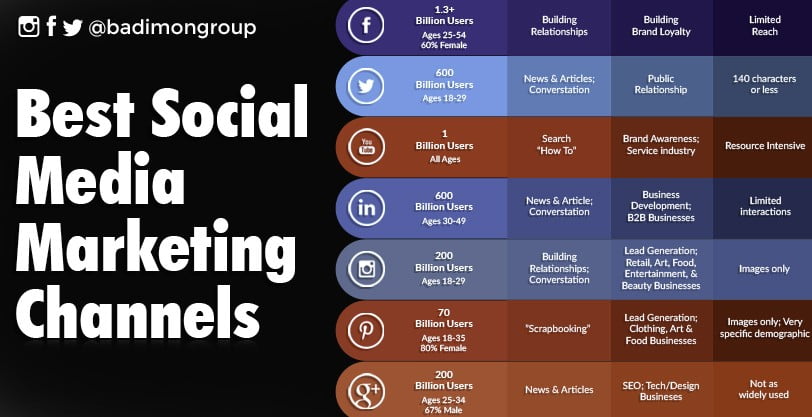The digital marketing landscape is an ever evolving industry. Each year Google releases hundreds of updates that businesses need to be prepared to adapt to. Often times, they will seek out the  advice from digital marketing experts to help lay out their yearly strategy. This year we’ve reached out to a few of the leaders in the industry to get the pulse of digital marketing in 2019.
advice from digital marketing experts to help lay out their yearly strategy. This year we’ve reached out to a few of the leaders in the industry to get the pulse of digital marketing in 2019.
Content Remains King
“The most effective SEO strategies in 2019 are generating enough high-quality content, promoting that content outside SEO to get links/subscribers, and tagging every campaign and content in Google Analytics for tracking and ROI measurement,” says Christine Slocumb of ClarityQuest. “Outside of content, site speed on desktop and mobile is becoming increasingly important.”
“Were seeing the convergence of content channels as people browse products on websites, ask for friends opinions on social media, skim third-party reviews, and watch videos to confirm or deny products quality standards. Thus, it is more crucial than ever that digital retailers make information about their products available via not just one, but all available platforms,” echoes Rhodes Kriske of Tekli.
“Neglecting social media posts, search engine profiles, Q&A forums, etc. could cost a business more than expected; whereas, aligning digital marketing channels is going to pay off now more than ever.”
Optimize Your Website
“On-site optimization has become increasingly more important in 2019,” explains Chris Wielinski of Think Cre8tive. “Making sure that each part of your website is optimized for Google will elevate your off-page efforts and make sure your organic profile as a whole is as optimized as can be for ultimate impact.”
Focus On Conversion Rate
“2019 has been a difficult year for many UK businesses, as uncertain investors pull out of the UK market,” echoes Tom Brand of Found. “ROI is now more important than ever, which means SEO strategies which involve user experience and conversion rate optimisation tactics will have the edge, driving more revenue for businesses struggling internally with investment and budgets. It’ll be all about making more revenue from the customer base you have to ensure financial stability.”
Welcome Voice Search
“We think its time to start including a strategy for voice searches in your marketing mix,” describes Matt Kreikemeier of Leverage. “With something like 100 billion Google searches per month, search marketing is definitely a place to operate, but those searches are gradually shifting to voice devices like Alexa, Siri, and Google Assistant (estimated 50% by 2020). Its not too late to be on the forefront of optimizing for voice search.”
Speed Matters
“The most effective SEO strategies for SEO include site speed, fresh content, rich snippets and brand building indicators. As most people know mobile has grown massively over the last 10+ years. As a result Google wants the fastest websites possible for both its Organic and Paid search listings,” states Robert Stoubos of Odyssey New Media. “Fresh content for services/product pages with images and video integrated is essential to keep mobile users interested. Rich snippets are becoming more and more essential in order to provide the richest SERP experience possible. Finally, brand building indicators via offsite backlink placements, key directories and key social networks are also essential. These combined can help websites dominate in the search results.”
Use A Deliberate Strategy
“Implementing an effective SEO strategy takes deliberate effort targeted across digital platforms using various age-old and newly emerged techniques in a consistent manner,” says Ashley Rickman of Reladyne. “A comprehensive approach that combines classic keyword rich copy, persistent social media presence and quality backlinking with recently emphasized mobile-first indexing and page speed, as well as adherence to GDPR requirements will create a winning strategy for SEO. Establishing and maintaining a strong recognizable brand footprint across the digital landscape will heighten the success of these aforementioned SEO techniques.”
“Marketing before was a bit of a guessing game. With data and analytics, we now have the ability to know what customers are thinking and deliver what they really want,” explains John Monte of Wegacha. “Technology now allows us to work within a new system thats based on creating value through personalized customer experiences.”
“Were finally seeing a focus on more than just “ranking” but rather on converting existing traffic, and that results in a much quicker ROI for most clients,” mentions Adam Lewis of Xponex.


